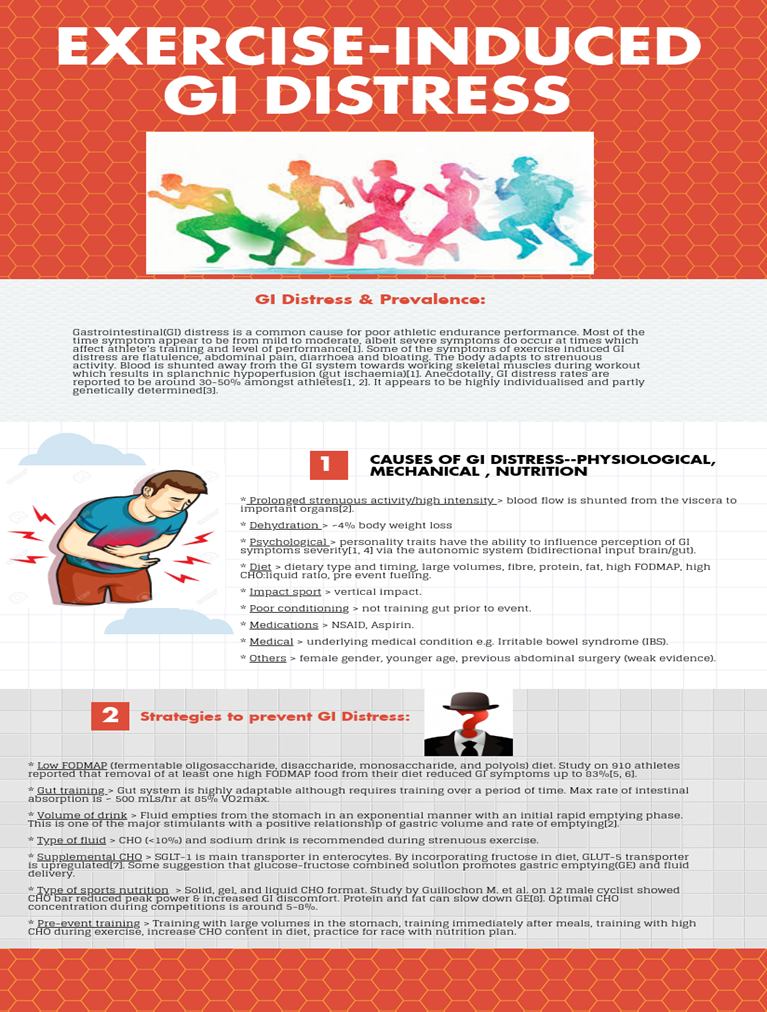
REFERENCES:
- Lis, D.M., et al., Low FODMAP: A Preliminary Strategy to Reduce Gastrointestinal Distress in Athletes. Medicine and science in sports and exercise, 2018. 50(1): p. 116-123.
- de Oliveira, E.P. and R.C. Burini, Food-dependent, exercise-induced gastrointestinal distress. Journal of the International Society of Sports Nutrition, 2011. 8(1): p. 12.
- Cox, G.R., et al., Daily training with high carbohydrate availability increases exogenous carbohydrate oxidation during endurance cycling. Journal of Applied Physiology, 2010. 109(1): p. 126-134.
- Mayer, E.A. and K. Tillisch, The brain-gut axis in abdominal pain syndromes. Annu Rev Med, 2011. 62: p. 381-96.
- Lis, D., et al., Food avoidance in athletes: FODMAP foods on the list. Applied Physiology, Nutrition, and Metabolism, 2016. 41(9): p. 1002-1004.
- Shepherd, S.J., M.C. Lomer, and P.R. Gibson, Short-chain carbohydrates and functional gastrointestinal disorders. Am J Gastroenterol, 2013. 108(5): p. 707-17.
- Jeukendrup, A.E., Training the Gut for Athletes. Sports Medicine, 2017. 47(1): p. 101-110.
- Guillochon, M. and D.S. Rowlands, Solid, Gel, and Liquid Carbohydrate Format Effects on Gut Comfort and Performance. International Journal of Sport Nutrition & Exercise Metabolism, 2017. 27(3): p. 147-154.
